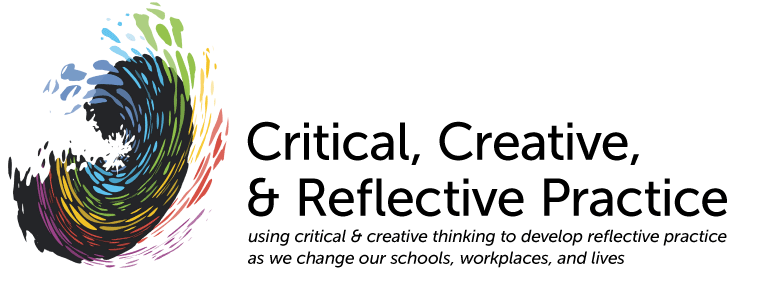Critical Thinking & Changing Times
This page has been started by
peter.taylor@umb.edu (pjt) to record items posted to a Forum of the same name on the CCT Network's
social network site ("ning").
The idea of critical thinking here is that "critical thinking depends on inquiry being informed by a strong sense of how things could be otherwise. People understand things better when they have placed established facts, theories, and practices
in tension with alternatives." The idea is _not_ that readers--or sometimes even the writers--agree with the alternative. However, "without alternatives in mind scrutiny of one's own evidence, assumptions and logic, or of those of others is difficult to motivate or carry out" (
http://www.faculty.umb.edu/pjt/journey.html).
I am skeptical, questioning of the claim that
"the 'doubting game'--- being skeptical, questioning, criticizing all ideas in order to uncover hidden flaws---...has come to dominate our culture's conception of good thinking" (
source)
I am thinking that educators talk like that, but our
culture as enacted and experienced is not consistent on doubting or believing or generating new ideas. The path ahead may not simply be to posit methodological believing as a corrective measure to doubting.
(pjt, after a morning tea with Peter Elbow in Amherst, 4/4/09)
It runs in the family...
The idea that something runs in a family is clearly ambiguous about whether this is transmitted via genes or via environment.
This ambiguity seems built into "inheritance" (and its synonyms), which is what one's family transmits to you-- originally by virtue of social resources but now also by genes from parents.
(It is always interesting to me when key ideas are expressed in terms are based on ambiguity.) (pjt)
20 Jan '07, Letter to the NY Times (not published)
Biology says human life does not begin at conception. The sperm and the egg are already living, functioning, human entities. They are certainly not dead or non-human. Yuval Levin ("
A Middle Ground for Stem Cells") could extend his "profound moral case" for equality to every sperm and every egg. In vitro fertilization gives most eggs a chance-a right?-to be fertilized and move into the next phase of living. As a matter of public policy, this would require colossal interference in the menstrual lives of females. (And the right of every sperm to continue living-let's not spell out what that would entail!) Society would then need to decide which women would then be implanted with those fertilized eggs-even in Levin's "age of biotechnology" embryos need a women's womb to develop until birth. And to decide who would then look after these human lives, given that every baby needs nurturing adults to grow and develop as a person.
I doubt that Levin wants the logic of his argument to be played out this way. But doing so exposes the political position taken by many (most?) people who oppose stem cell research on moral grounds, namely, support for laws that subordinate the lives of women to the embryos they may not always choose to carry. What bioethical or "moral" considerations can make this position just? (pjt)
